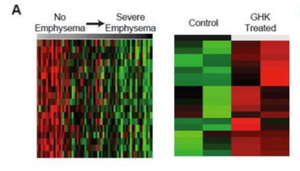Our 2013 Life Science Awardees were Ulla Hansen, David Harris, Avrum Spira and Marc Lenburg, and Kenneth Walsh. All winners demonstrated potential for developing small and large molecule therapeutics in multiple therapeutic areas.
Ulla Hansen, Professor of Biology, is developing small molecule LSF inhibitors for the treatment of liver cancer. The objective of this proposal was to demonstrate growth arrest of primary liver tumors within an animal model, without toxic side effects. As part of their Ignition proposal, the team will generate systematic toxicology studies of the compounds in rodents, pharmacokinetic (PK) analyses of more soluble compound derivatives, and delineation of key features of the LSF biological pathway in liver cancer cells. Pharmaceutical companies have expressed interest in the small molecules.
David Harris (Professor and Chair in the Department of Biochemistry) and Emiliano Biasini (Instructor in the Department of Biochemistry) work on prion protein ligands as therapeutic agents for Alzheimer’s disease (AD). AD is associated with accumulation of amyloid-ß (Aß) peptide in the brain, leading to progressive dementia. Compelling evidence suggests that soluble, oligomeric assemblies of Aß are primarily responsible for the synaptic dysfunction underlying cognitive decline in AD. Recently, the cellular form of the prion protein (PrPc), a membrane glycoprotein expressed at the neuronal surface, has been identified as a receptor for Aß oligomers and possibly toxic protein aggregates associated with other neurodegenerative disorders. The research team is developing small-molecule ligands that bind to PrPC and thereby inhibit the interaction with Aß oligomers. Their Ignition proposal will test whether such compounds are capable of reducing the pathogenic effects of Aß oligomers in transgenic mouse models of AD.
Avrum Spira (Professor of Medicine, Pathology & Laboratory Medicine) and Marc Lenburg (Associate Professor of Medicine in Computational Biomedicine, Pathology & Laboratory Medicine) working together with Post-doctoral scholar Joshua Campbell utilized genome-wide expression profiling to identify therapeutic targets for COPD, chronic obstructive pulmonary disease. COPD is a significant public health problem worldwide and the third leading cause of death in the United States. One of the processes that contributes to COPD is emphysema – the destruction of the tissue where oxygen and carbon dioxide exchange occurs. In order to gain insights into what drives emphysema, the team identified gene-expression changes in lung tissue from patients with severe emphysema . The team also discovered that GHK was able to reverse these changes and restore tissue and collagen remodeling in human fibroblast cell lines. Therefore, GHK is proposed as a potential therapeutic for emphysema, and the team is seeking industry partners who are interested in commercial development.
Finally, Kenneth Walsh, from the Whitaker Cardiovascular Institute, has discovered a novel disease modifying therapy for inflammatory myositis. The laboratory has developed a novel transgenic mouse (MyoMouse) with enhanced muscle function exhibited by increased strength, resistance to diet-inducing obesity, and superior regenerative response to muscle injury. Using this model, the team is isolating factors secreted by muscle that confer the health benefits of exercise.The team has focused on the Insulin-Like 6 protein (Insl6) because it demonstrated unique disease modification in a cardiotoxin-induced model of severe muscle injury. To validate the genetic data and Insl6’s therapeutic potential, the team has collaborated with Lake Pharma, Inc. (Belmont, CA), to demonstrate the therapeutic potential of Insulin-Like 6 protein in the setting of inflammatory muscle injury.
The year brought in a range of fantastic Life Science innovations in devices, diagnostics, and small/large molecules. With funding awarded to this year’s winners, we are excited to see continued advances in their research, development, and commercialization.

